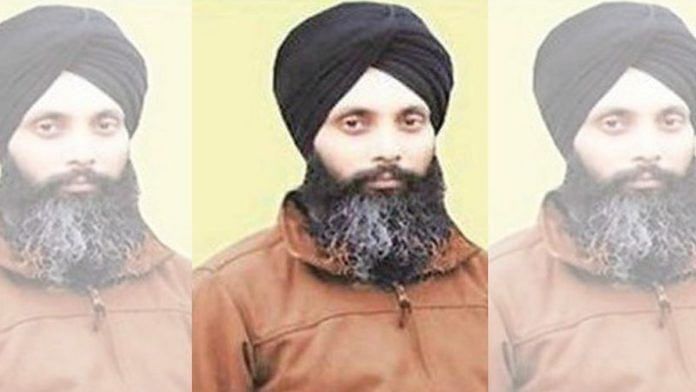New Delhi: Indian High Commissioner Sanjay Kumar Verma reiterated New Delhi’s stance to demand Canada provide evidence supporting its allegations regarding the killing of Sikh separatist Hardeep Singh Nijjar in British Columbia earlier this year.
Speaking to CTV News Channel on Saturday on India’s cooperation in the investigation, Verma emphasised on two crucial points. “Even before the investigation was completed, India was convicted. Is that a rule of law?” he stated.
When asked how India was ‘convicted’ as Canada has been careful to use the word ‘allegation’, Verma explained: “Because India was asked to cooperate. If you look at the typical terminology, when someone asks to cooperate, it means you are already convicted and you better cooperate.”
“We took it in a very different interpretation, but we always said that if there is anything specific and relevant and communicated to us, we will look into it.”
Why is India not cooperating in an investigation after Prime Minister Trudeau alleged India may be involved in the killing of a Sikh separatist leader on Canadian soil?
India’s High Commissioner to Canada Sanjay Kumar Verma joins @ctvqp for his first TV interview since the… pic.twitter.com/BNi93TK2BI
— CTV Question Period (@ctvqp) November 24, 2023
The full interview will be released on CTV Sunday.
This is the second time the High Commissioner of India to Canada has challenged Ottawa to “show evidence” this month. In an interview with The Globe and Mail earlier this month, Verma highlighted that the Canadian PM has been careful so far to use the word “allegation” rather than “evidence” throughout his statements.
Canada has instead said there were “credible allegations” about a “potential link” between Nijjar’s killing and Indian agents.
“There is no specific or relevant information provided in this case for us to assist them in the investigation,” Verma had earlier said.
More than two months ago, Canadian Prime Minister Justin Trudeau raised allegations against India, on 18 September, linking India with the killing of Nijjar. New Delhi had rejected these allegations, calling them “absurd and motivated”. The bilateral ties went cold, with the two countries expelling each other’s diplomats.
Since then, New Delhi has maintained that Ottawa is yet to provide evidence to back its claims on the alleged role of Indian agents in Nijjar’s killing.
However, ahead of the G20 virtual summit this week, which Trudeau attended, India resumed e-visa services for all Canadian nationals, including visas in the visitors’ category. Last month, India had resumed some visa services to Canada including entry, business, medical, and conference visas.
Also Read: In Hardeep Singh Nijjar killing, look beyond the usual suspect. There is gangs, guns and God
Pannun ‘assassination attempt’
On Thursday, British daily Financial Times reported that US authorities had thwarted an “assassination attempt” on Sikh separatist Gurpatwant Singh Pannun and issued a “diplomatic warning” to the Indian government over concerns it was involved in the plot.
According to the report, US federal prosecutors had filed a sealed indictment against at least one alleged perpetrator of the plot in a New York district court. The US Justice Department is considering whether to make the allegations public, or wait for Canada to finish its probe.
“Further complicating the case, one person charged in the indictment is believed to have left the US, according to people familiar with the proceedings,” according to Financial Times.
Pannun, founder of the banned US-based group Sikhs for Justice and a designated-terrorist by India in 2020, has repeatedly called for a separate state of Khalistan. He has threatened numerous Indian diplomats in Canada, including most recently Consul General of India in Vancouver, Manish.
Earlier this month, Trudeau accused India of “arbitrarily” kicking out 41 diplomats and violating international law. This came after New Delhi said that it communicated its concerns, over the growing Sikh separatist sentiment in Canada, to Washington during the India-US 2+2 ministerial dialogue. The ongoing diplomatic row was also discussed in the India-Australia 2+2 ministerial meet last week.
Canada withdrew 41 diplomats and 42 dependents last month, alleging that New Delhi’s request for diplomatic parity was a “violation of international law and the Vienna Convention”. This came after New Delhi repeatedly sought diplomatic parity, giving Ottawa a deadline of 10 October, which was later extended to 20 October.
The US and the UK backed Canada’s allegations, with Washington noting that it was “concerned by the departure of Canadian diplomats”.
New Delhi rejected these allegations, stating that its actions were “fully consistent with Article 11.1 of the Vienna Convention”. Last month, India even supported a Canada-proposed resolution in the United Nations General Assembly last month, supporting the condemnation of the Hamas’ 7 October attacks in Israel.
(Edited by Tony Rai)



